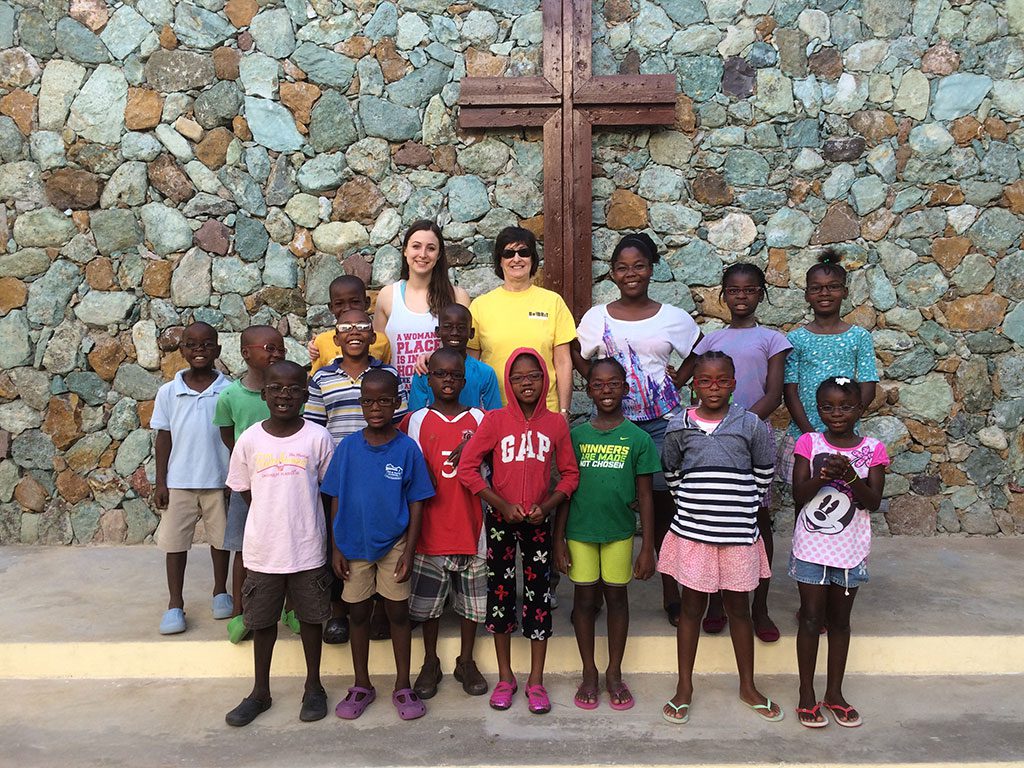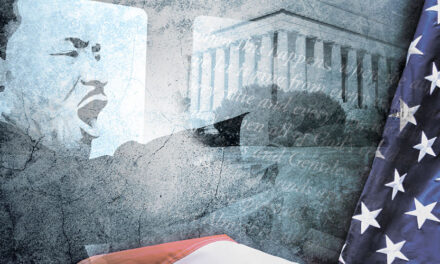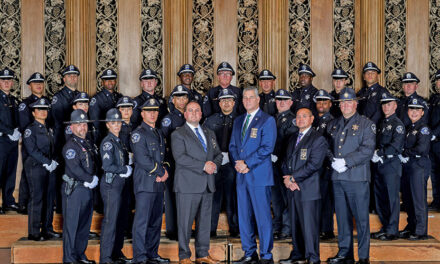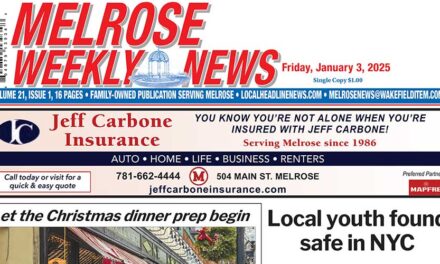Published in the January 29, 2016 edition

LOCAL ophthalmologist Dr. Vicki Kvedar (back row, second from left) and her daughter Julie (first in back row) worked diligently to make sure the orphans at the Be Like Brit orphanage in Haiti were fitted with the right pair of glasses during the Kvedars third medical mission to the orphanage recently. (Courtesy Photo)
By DAN TOMASELLO
MELROSE — Local ophthalmologist Dr. Vicki Kvedar, MD and her daughter Julie have spent the past three years honoring the life and legacy of Britney Gengel during their annual medical mission to the Be Like Brit orphanage in Haiti each January.
Be Like Brit is named after Rutland native Britney Gengel, who was killed in the massive earthquake that hit Haiti in January 2010. Britney had just arrived in Haiti on a college-sponsored mission trip offered by Lynn University.
After the earthquake, Dr. Kvedar recalled seeing Britney’s father, Len, on the news desperately searching for his missing daughter. Thirty–three days after the earthquake, Britney’s body was recovered from the rubble of her hotel. Afterward, Len and Cheryl Gengel decided to build an orphanage in their daughter’s memory. It took three years to build Be Like Brit.
Britney Gengel’s story resonated with the Kvedars. Dr. Kvedar, who works at North Shore Ophthalmologists, 467 Main St., Melrose, and Julie, who is pursuing a master’s degree in Public Health from Columbia University in New York City, have been volunteering at the orphanage for the past three years.
The Kvedars volunteered at Be Like Brit Jan. 9-16. Dr. Kvedar said it felt great being back at the orphanage.
“Each return trip to the orphanage feels like we are going home,” said Dr. Kvedar. “We recognize the children, watch them grow, observe how they are learning their letters and now we are beginning to hear their English language skills improve. Each child is enrolled in a computer program called “ABC Mouse,” which teaches them English. They also have live English lessons in the orphanage and learn to sing songs in English. The children who we have given glasses to in the past have done better on subsequent report cards in school. It’s so rewarding to watch them thrive in the orphanage, which would not have happened to any of them if they had been left in their prior dire living situations.”
The Kvedars spent the majority of their time at Be Like Brit examining the 67 children and 100 adult workers who call the orphanage home.
“There is a medical clinic within the orphanage,” said Dr. Kvedar. “When we arrive, we take it over by opening up all our boxes of donated eyeglasses, eye drops, ophthalmic equipment and medical equipment. We carefully examine each patient and give them free eyeglasses, eye drops or whatever they need.”
In addition to volunteering at the orphanage, the Kvedars also visited a makeshift medical clinic in the mountains and examined rural people who had never seen an ophthalmologist.
“Their needs were actually much worse, since five of them needed surgery and with my limited time there, I had no access to an operating room,” Dr. Kvedar explained. “I did my best to refer them to a free clinic in a city but they may have no means of transportation to actually get there. In the United States, they would have been whisked off to surgery immediately but I’m not sure that any of these people will ever get to an operating room. That’s the depressing part. The exciting part of this job is that there were many people who we really did help by having the correct diagnosis, glasses and medicine all there waiting for them.”
While treating Haitians in the mountains, the Kvedars treated people with of a variety of different health ailments, particularly cataracts and glaucoma. The Kvedars also treated a baby with a rare skin disease called ichithyois.
“It makes his skin so dry, from head to toe, that it is taut and pulls his lower eyelids down away from his eyes,” said Dr. Kvedar. “He had a constant flow of tears because his lower eyelids were everted (turned outward) and couldn’t contain his natural tears. A Haitian doctor had misdiagnosed it as conjunctivitis and prescribed antibiotic eye drops. I took one look at him and knew he had a much bigger problem than conjunctivitis. He needs massive amounts of moisturizers around the clock, in addition to special medicine not available in Haiti and he needs surgery to put his eyelids back in normal functioning position.”
Dr. Kvedar said the Be Like Brit orphanage “continues to improve” since the Kvedars first visited three years ago. She said the orphanage has hired additional workers to dig a cistern in the yard to collect rainwater.
“The orphanage does its best to be self-sustaining by using donated solar panels, its own well and 100 fruit and vegetable plants so that they rarely need to buy electricity, fruits or vegetables,” said Dr. Kvedar. “There is no running water in Haiti, so by having its own well, Be Like Brit does have running water and gives some away to the neighborhood too.”
Dr. Kvedar also said the children at the orphanage “appear to be thriving.”
“The youngest boy, who arrived a year ago at age 2, was living with family who were all deaf, so there was no spoken language in the home whatsoever,” said Dr. Kvedar. “He arrived with no concept of spoken language. He is now saying hundreds of words and putting together short sentences. A teenager was living with a father who raped her and she was brave enough to go to the police to report him. She never went back to that home but now has a safe, loving home. Many of the children were orphaned by the earthquake in 2010. Each child in the orphanage has their own story of misery that they are working through with lots of support from the Be Like Brit staff. Now the children are very affectionate. They are not afraid to come up to the missionaries and sit on our laps and hug and cuddle for hours.”
During the medical mission to Haiti, the Kvedars, children and workers at the orphanage participated in a candlelight ceremony to mark the sixth anniversary of the earthquake at 4:53 p.m. on Jan. 12.
“Most of the people there, except the little ones, were affected in some way by the earthquake,” said Dr. Kvedar.
In addition to providing medical care and attending the candlelight ceremony, the Kvedars participated in “more cheerful activities” that included birthday celebrations and talent shows.
“Those children sure know how to sing and dance,” said Dr. Kvedar. “The rest of the group with us were College of the Holy Cross students, who built a house for a family in the community, while Julie and I were examining eyes.”
Dr. Kvedar said the main reason she and Julie have returned to Be Like Brit the past three years are the people.
“The Haitian people are the most appreciative people I have ever met,” said Dr. Kvedar. “They don’t expect anything to be given to them. They thank and hug me after I finish an eye exam. They ask when I am returning because they are afraid they will go blind if I don’t return. The children run up to me and hug, cuddle and sit on my lap when they see me. They don’t ask for anything except some kindness, love and attention.”
If local residents would like to donate to Be Like Brit, they should visit www.BeLikeBrit.org. Dr. Kvedar said there is a wish list located on the website for different supplies the orphanage needs.
“There is always a need for more missionaries,” said Dr. Kvedar. “Most of the missionaries are not medical in nature. They are usually regular people who want to help and see the world at the same time. You will become part of a group who works together to build a house for a family in need. You will spend lots of time, much more than Julie and I did because we were trying to fit everyone’s eye exam into a very compressed week, playing with the children in the orphanage. If you don’t want to go to Haiti but want to help, you can donate to Be Like Brit or sponsor a child at the orphanage, which pays for their schooling and clothes. Donations could be monetary or actual items.”
If residents would like to contact Be Like Brit via mail, the orphanage’s Massachusetts address is Be Like Brit, 66 Pullman St., Worcester MA 01606. The local phone number is 508-886-4500. If residents would like to contact Dr. Kvedar about Be Like Brit, she can be reached at her office, located at 467 Main St., Melrose MA 02176. She can also be reached at 781-662-2216 if residents want to donate eyeglasses or have any questions.




